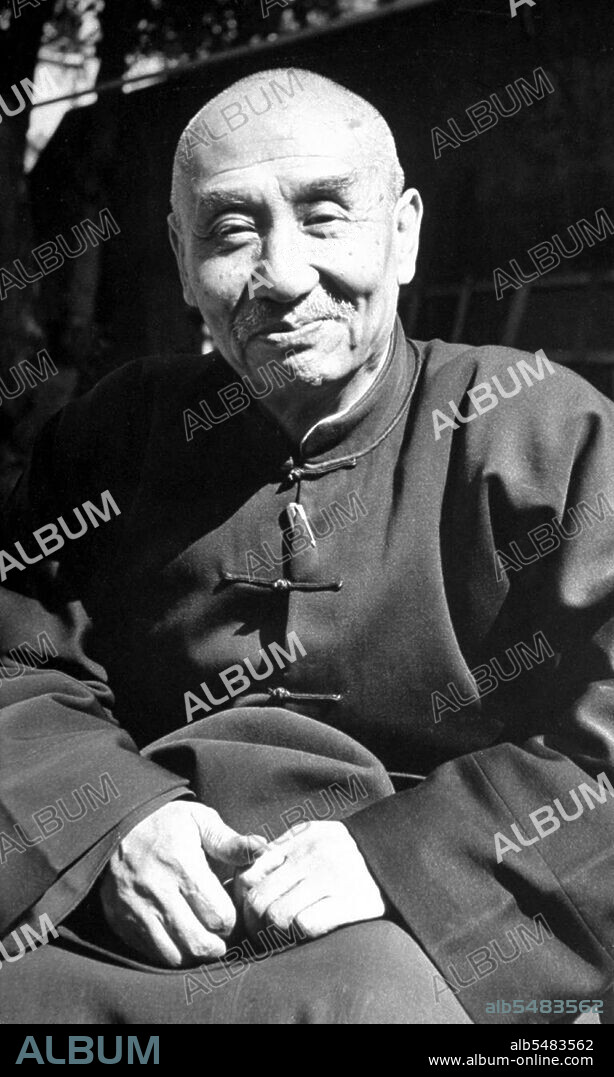alb5483562
China: Yan Xishan, Chinese Warlord, Shanxi Province (1911-1949), in retirement in Taiwan towards the end of his life

|
Add to another lightbox |
|
Add to another lightbox |



Title:
China: Yan Xishan, Chinese Warlord, Shanxi Province (1911-1949), in retirement in Taiwan towards the end of his life
Caption:
Yan Xishan, (Wade–Giles: Yen Hsi-shan, 8 October 1883 – 22 July 1960) was a Chinese warlord who served in the government of the Republic of China. Yan effectively controlled the province of Shanxi from the 1911 Xinhai Revolution to the 1949 Communist victory in the Chinese Civil War. As the leader of a relatively small, poor, remote province, Yan Xishan survived the machinations of Yuan Shikai, the Warlord Era, the Nationalist Era, the Japanese invasion of China, and the subsequent civil war, being forced from office only when the Nationalist armies with which he was aligned had completely lost control of the Chinese mainland, isolating Shanxi from any source of economic or military supply. Yan has been viewed by Western biographers as a transitional figure who advocated using Western technology to protect Chinese traditions, while at the same time reforming older political, social, and economic conditions in a way that paved the way for the radical changes that would occur after his rule.
Credit:
Album / Pictures From History/Universal Images Group
Releases:
Model: No - Property: No
Rights questions?
Rights questions?
Image size:
3300 x 5500 px | 51.9 MB
Print size:
27.9 x 46.6 cm | 11.0 x 18.3 in (300 dpi)
Keywords:
ARMY: SOLDIER • ASIA IMAGE • ASIA PICTURES • ASIA • ASIAN IMAGES • ASIAN PICTURES • ASIAN • CHINA • CHINE • CHINESE REPUBLIC • CHINESE • HISTORIA UNIVERSAL • HISTORICAL IMAGES • HISTORICAL PICTURES • HISTORICAL • HISTORY IMAGES • HISTORY PICTURES • HISTORY • MILITAR • MILITARIST • MILITARS • MILITARY • PEOPLE'S ARMY SOLDIER • PORCELAIN • REPUBLIC OF CHINA • REPUBLICAN PERIOD • SHANXI • SOLDIER • SOLDIERS • SOLIDER • TROOPS • WARLORD ERA • WARLORD • WARRIOR • WARRIORS • YAN XISHAN • YEN HSI-SHAN
 Pinterest
Pinterest Twitter
Twitter Facebook
Facebook Copy link
Copy link Email
Email

